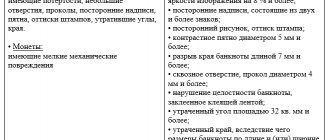Rating: 5.0 /5. From 3 votes.
Please wait…
Voting is currently disabled, data maintenance in progress.
Bank deposits are inherited along with other valuable objects of material rights.
The formalization of the procedure for transferring rights to heirs has a number of features that raise many questions in practice.
How heirs can obtain information about the availability of deposit accounts opened in the name of the deceased, what documents need to be obtained to include information about them in the certificate of inheritance, and who is responsible for registering rights, read in more detail in this material.
If there is a will
Current legislation provides for two options for inheritance:
- by will;
- in law.
Having made a will, a citizen can determine the circle of heirs, indicating the size of the share of each of them. He may also disinherit his rightful successors. To do this, it is enough simply not to indicate them in the document.
A will can include all or part of the property. In the latter case, inheritance of objects not specified in the order will occur in the order of legal priority.
Having wills significantly speeds up the process of searching for bank deposits. If the account is indicated in the document, then the heirs will only need to contact the bank for subsequent withdrawal of funds. However, not every person is preparing for death, and therefore many people do not leave any testamentary dispositions. But even in this case, relatives can receive the funds of the deceased.
In addition, the deceased could write a testamentary disposition, which is executed directly at the bank. Unlike a will, this paper only applies to bank deposits. The document is kept in a financial institution and comes into force upon the death of the testator.
The process of receiving money from a deceased relative at a Sberbank branch
Nowadays, many investors, especially if they are elderly, try to take care of the future in advance so that the inheritance of their deposits will not be a problem for relatives. Sberbank itself offers a special service, according to which you can then register a deposit and immediately draw up a specific testamentary disposition. This is an official document; once completed, it is signed by the bank manager. This document, in its legal force, is practically equivalent to a full-fledged will, which then significantly facilitates the inheritance procedure for future heirs. The investor himself stipulates in the document the order and amount of amounts that he wishes to transfer to one or another relative. After death, the people indicated in the document only need to visit a notary to enter into inheritance rights.
- make documents officially confirming their status as heirs (a notary will help);
- contact the required branch of the bank that is the custodian of the deceased’s deposit;
- Having accepted the papers, the bank itself will conduct a full check, determining the legality of the claims made by the relatives.
How to find information about the deposits of a deceased person
Since the relatives of the deceased citizen are interested in receiving his inheritance, they are the ones who should be looking for bank deposits. Theoretically, bank employees can search for those persons who claim funds stored in a financial institution. However, in practice no one does this. Moreover, bank employees may simply not know about the client’s death. They receive this information from the notary or relatives of the deceased.
It should be understood that unclaimed deposits are recognized as escheatable property and transferred to the ownership of the state. This is stated in Article 1151 of the Civil Code of the Russian Federation. Therefore, the sooner the heirs receive information about the bank deposits of the deceased, the better.
Notary's help
To obtain information about the composition of the estate, relatives of the deceased should contact a notary office. The fact is that current legislation does not allow banks to provide confidential information even to close relatives of their depositors. At the same time, notaries have the right to send official requests to financial institutions. This way, a specialist conducting a probate case can obtain information about the state of the deceased’s accounts at the time of his death.
The request can be sent to any financial institution. And if relatives have assumptions regarding the bank in which the deceased kept his funds, then they can significantly reduce the search range. In most cases, deposits are found in large government financial institutions.
Search for a deposit in Sberbank
Both a notary and an heir can submit an application to Sberbank. In addition, an authorized representative of one of the successors can contact the bank branch. For this you need to issue a power of attorney.
However, in some cases, the heirs do not have information regarding the number of the branch in which the funds of the deceased relative are kept. Then the request is sent only through a notary. This service is paid. Moreover, you will have to pay both the notary and the bank for issuing a certificate of deposit availability. As a rule, we are talking about small amounts of about 100 rubles.
To contact a financial institution, you need to prepare the following documents:
- notarial search request;
- death certificate of a relative;
- passbook or any other documents received from the bank (if any).
Contacting friends and acquaintances
If the heirs do not know in which financial institution the deceased kept his money, they should talk to people from the testator's immediate circle. Most likely, in conversations with them, he mentioned a bank in which an account could be opened in his name.
Contacting the tax service
This step is advisable if the notary was unable to obtain information about the deceased’s accounts. Then the specialist contacts the tax office. The Federal Tax Service receives data on assets and deposits belonging to citizens. Therefore, here you can get information about all the accounts of the testator.
Deposit Insurance Agency
You should contact this organization if the bank of the deceased citizen has not been accredited by the Central Bank. Accordingly, his license was revoked. To receive compensation, heirs submit a request to the Deposit Insurance Agency.
How can an heir find deposits after the death of a relative?
When choosing a notary, remember that there are also those who have connected to a direct digital communication channel with Sberbank. Having a personal digital signature in the Unified Notary Information System of Russia, they can send electronic requests to the bank. Replies to such messages come within two days. Not all notaries use the system. Some of them still prefer traditional paper correspondence, sometimes lasting for weeks.
If the heir does not have any assumptions about the exact name and location of the financial organization, then he will have to be patient and reserve time, since he will have to go around the banks in which the alleged inheritance is located. Credit institutions will not be able to respond to his letters containing only photocopies of documents, since they need to identify the individual or his legal representative who personally contacted the bank and presented his passport. Many legislative acts are designed to protect the secrecy of deposits from dubious documents and “curious barbarians.”
This is interesting: KVR Cable Television Services 2020
Features of receiving a deposit
Inheritance of bank deposits occurs according to general rules. First, applicants for an inheritance need to submit documents to a notary to accept the inheritance. This is done within six months from the date of death of the testator. If the deadline is missed, the heir loses his right to the property of the deceased. Restoration can only be achieved through the courts. But for this, the successor must have good reasons for missing out (for example, illness, long stay abroad, misinformation from other heirs, etc.).
Six months after the death of the testator, the notary issues certificates of right to inheritance to all successors. With these documents, each of them will be able to receive part of the deceased’s property. The size of the share is determined in accordance with the text of the will. If the document is missing, then the inheritance is divided equally between representatives of the closest line of kinship.
Documents for applying to the bank
Having received a certificate of the right to inheritance, a citizen can contact the bank to receive funds stored in the testator’s account. For this you will need the following documents:
- the applicant's identity card;
- certificate of inheritance;
- the deceased's passbook (if it is not there, then you can provide a contract concluded with the bank);
- a copy of the testator's death certificate;
- documents confirming the presence of relationship.
This is a basic package of documents that can be supplemented if necessary. The application review period is 3-5 days. The heir can then withdraw funds from the deceased relative's account.
About banks and finance
Remember to take and store all originals of the bank's official responses with outgoing numbers. They may be needed as evidence during a court hearing of an inheritance case. And this can happen in unpredictable domestic life.
The potential heir fills out a special application form and pays a check for 100 Swiss francs. The services of Metropolitan law firms providing assistance in cooperation with a Swiss organization in most cases cost about five hundred francs with all overhead costs.
12 Jun 2021 uristlaw 189
Share this post
- Related Posts
- Benefits for children of Chernobyl victims after 18 years of age
- Land Tax for Pensioners Over 80 in the Orenburg Region
- Where can you write a refusal to a father from a child?
- How Benefits for Utilities Are Calculated for Veterans of Labor
Organization of a funeral using a bank deposit
The death of a loved one is associated not only with emotions, but also with considerable material costs. Paying for funeral services can take a significant toll on the family budget. Therefore, with respect to Article 1174 of the Civil Code of the Russian Federation, relatives of a deceased citizen can claim compensation for expenses associated with organizing a funeral at the expense of the testator’s bank deposit.
Thus, you can withdraw money from your account ahead of schedule, and without waiting for receipt of notarial certificates. Those who organize funerals can receive funds. Moreover, these can be not only heirs, but also relatives who do not claim to receive the property of the deceased in order of priority.
To receive funds, the applicant needs to contact a notary in charge of the inheritance case. He draws up a resolution to compensate for the costs incurred in organizing the funeral. Next, the person indicated in the document can contact the bank and withdraw money from the deceased’s deposit. For this you will need the following documents:
- the applicant's identity card;
- notarial decree;
- death certificate of the testator;
- savings book or agreement with a bank.
The maximum amount of compensation is 100 thousand rubles. It should be understood that this money is issued for specific needs and is excluded from the inheritance mass.
Search for accounts
Searching for bank accounts is usually free of charge. The period for providing a certificate of open accounts should be up to 30 calendar days, but sometimes for good reasons it can take a longer period.
So, based on the above excerpt from the Law “On Banks and Banking Activities”, it becomes clear that the search for accounts/deposits can only be carried out by the following individuals:
- account/account holders or deposit/deposit holders;
- an authorized representative of the account/deposit owner (if there is a power of attorney);
- legal representative of the account/deposit owner (parent, guardian of a minor account/deposit owner; representative by court decision, etc.);
- heir of the account/deposit owner (only in relation to accounts formalized by a will);
- an authorized representative of the heir of the account/deposit owner (in relation to bequeathed accounts);
- legal representative of the heir of the account/deposit owner.
This is interesting: How to Get an Acceptance Certificate for the Transfer of an Apartment If the Developer Gives It Back Until I Pay the Money for the Cadastral Passport for 2020-19









